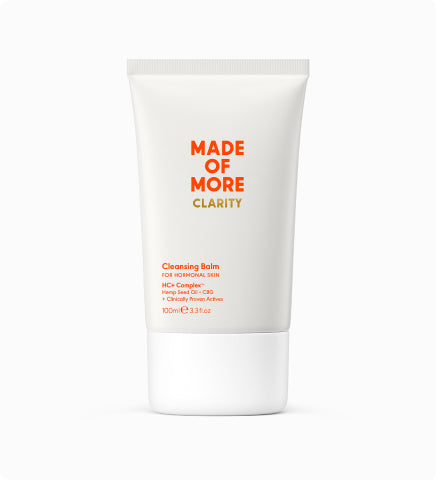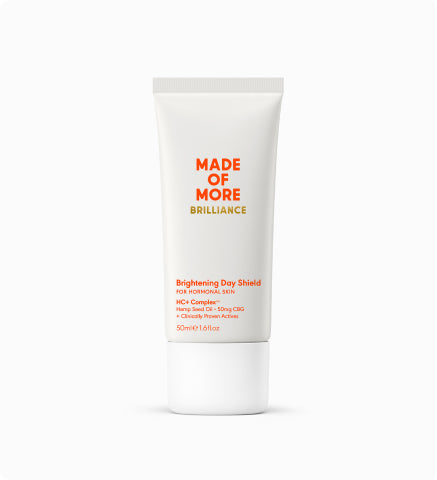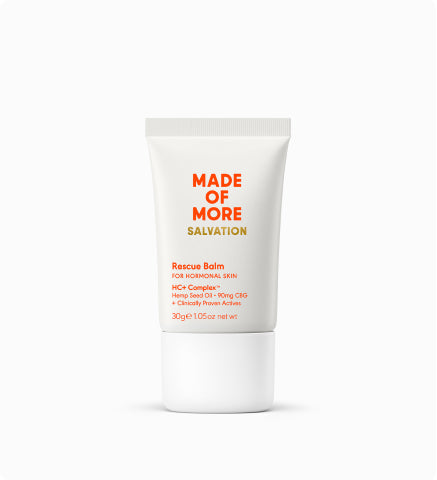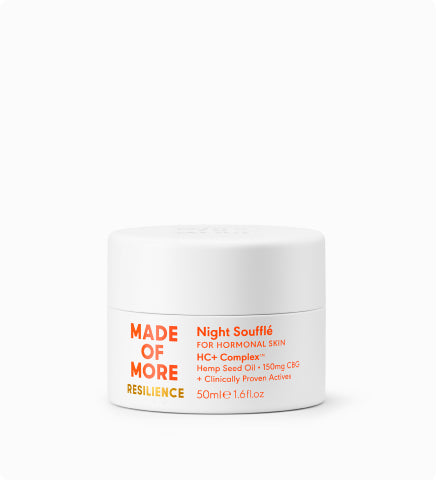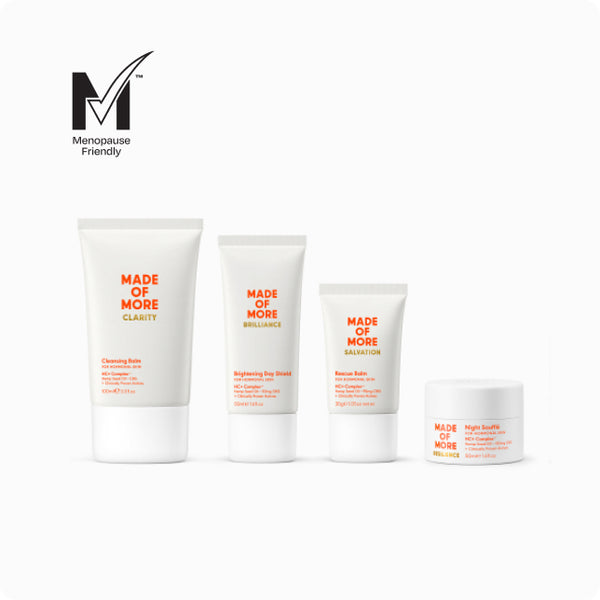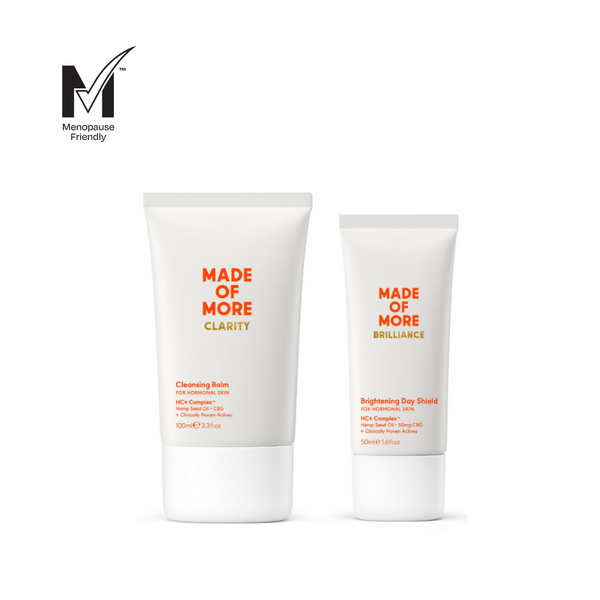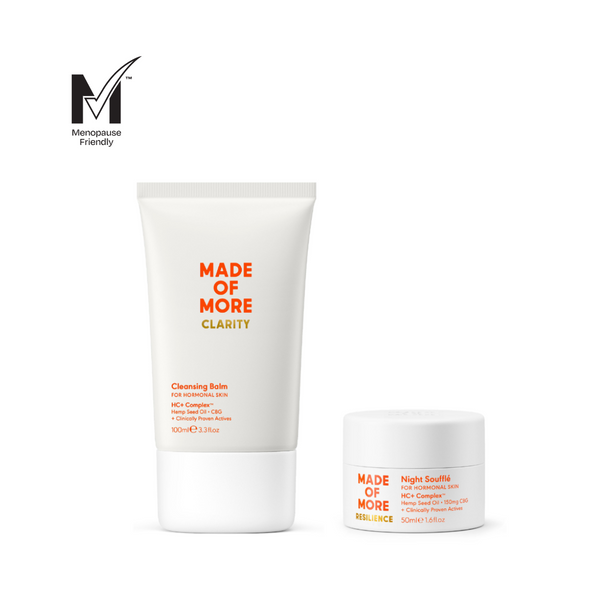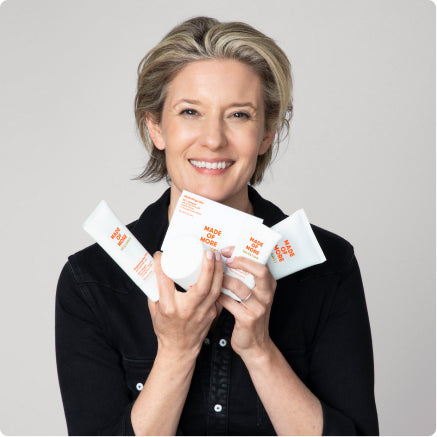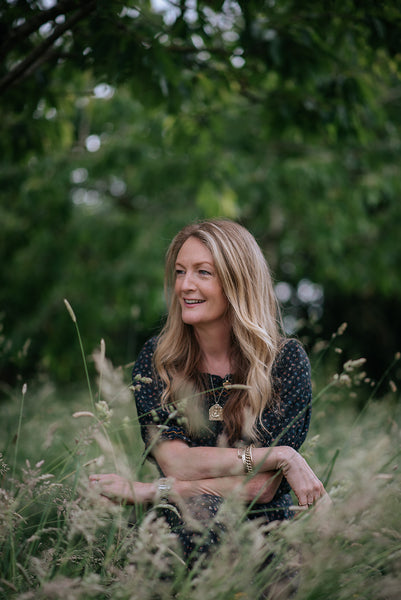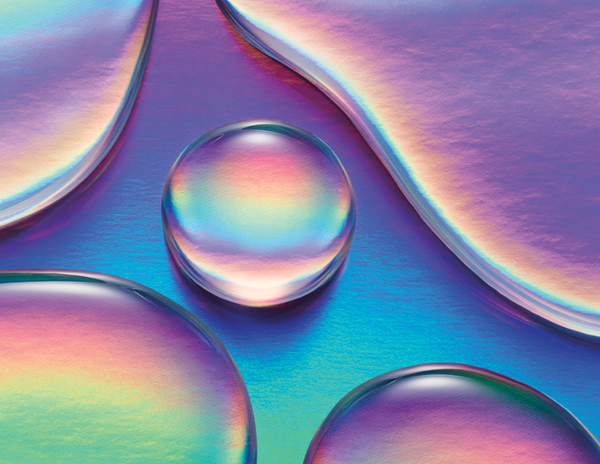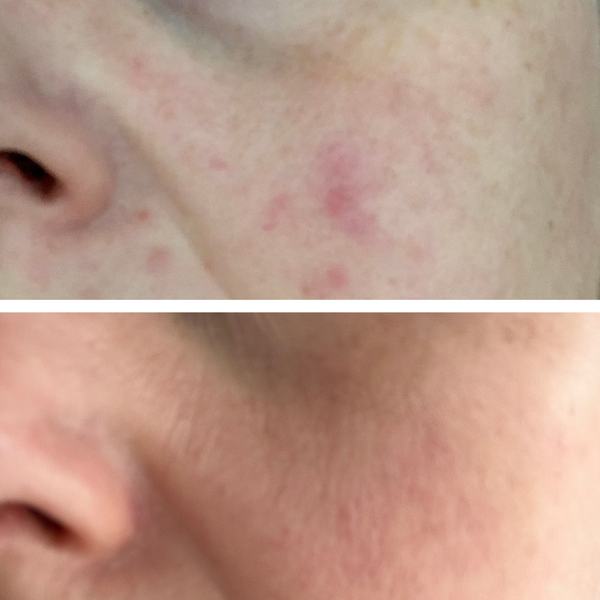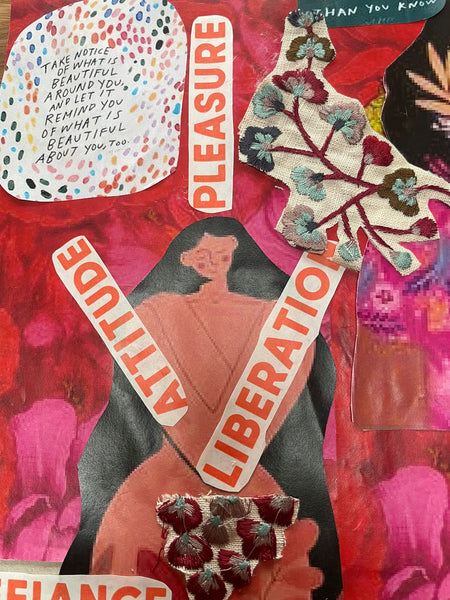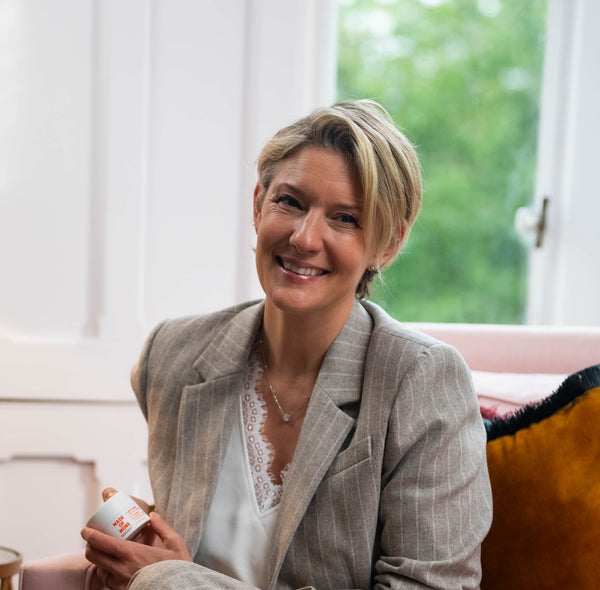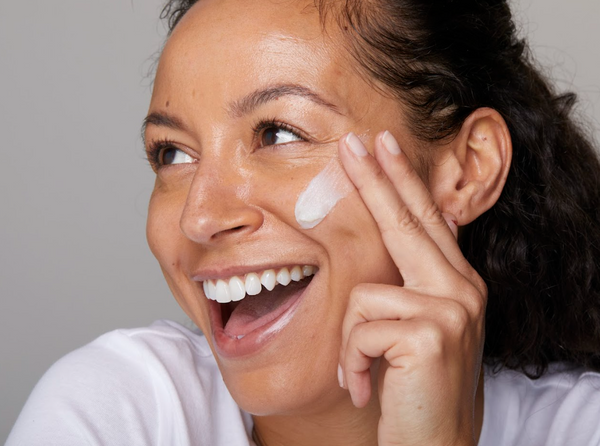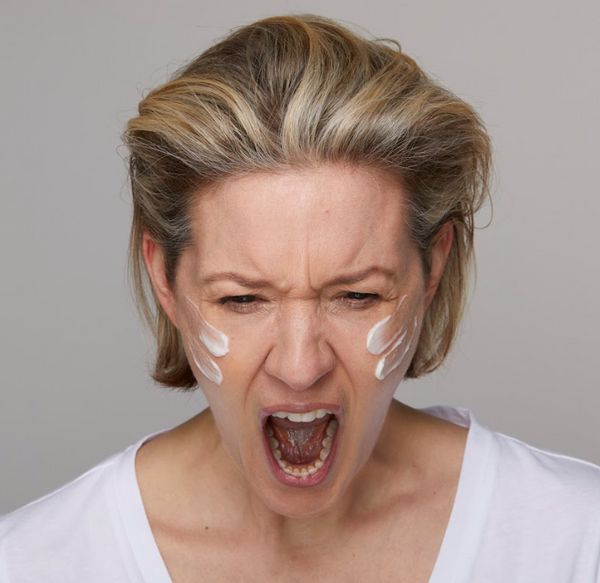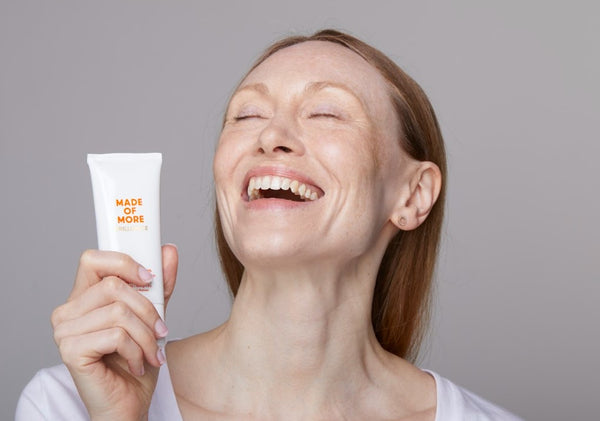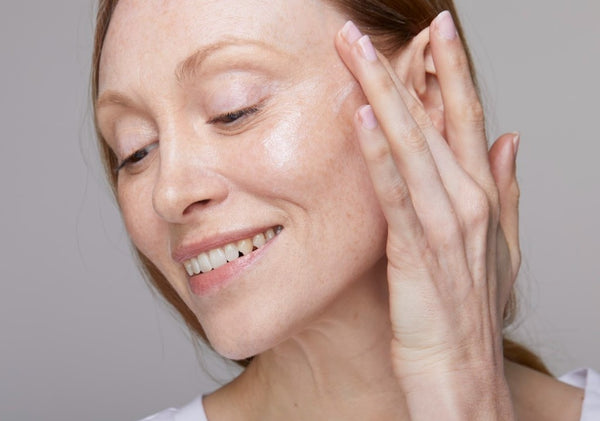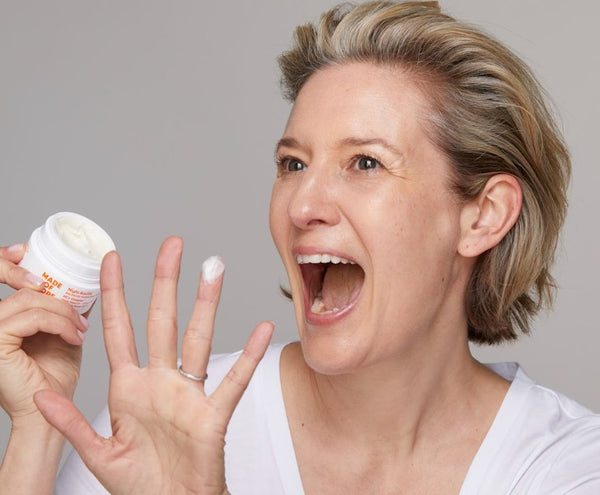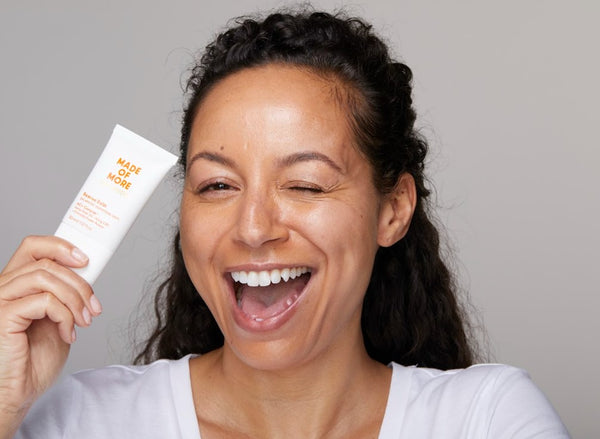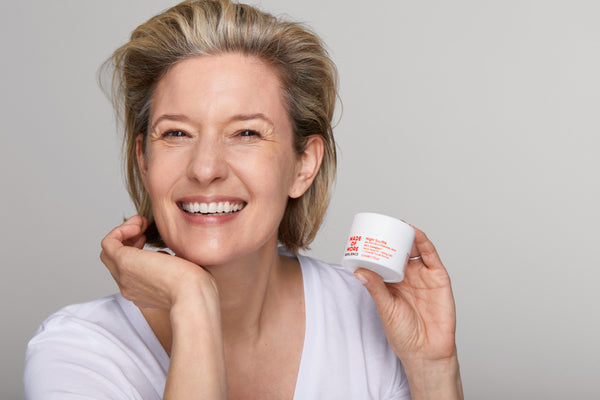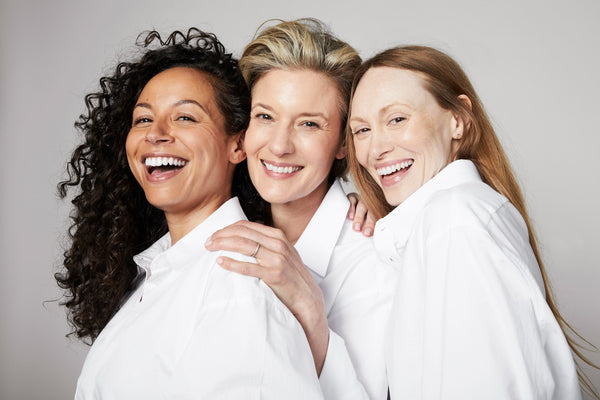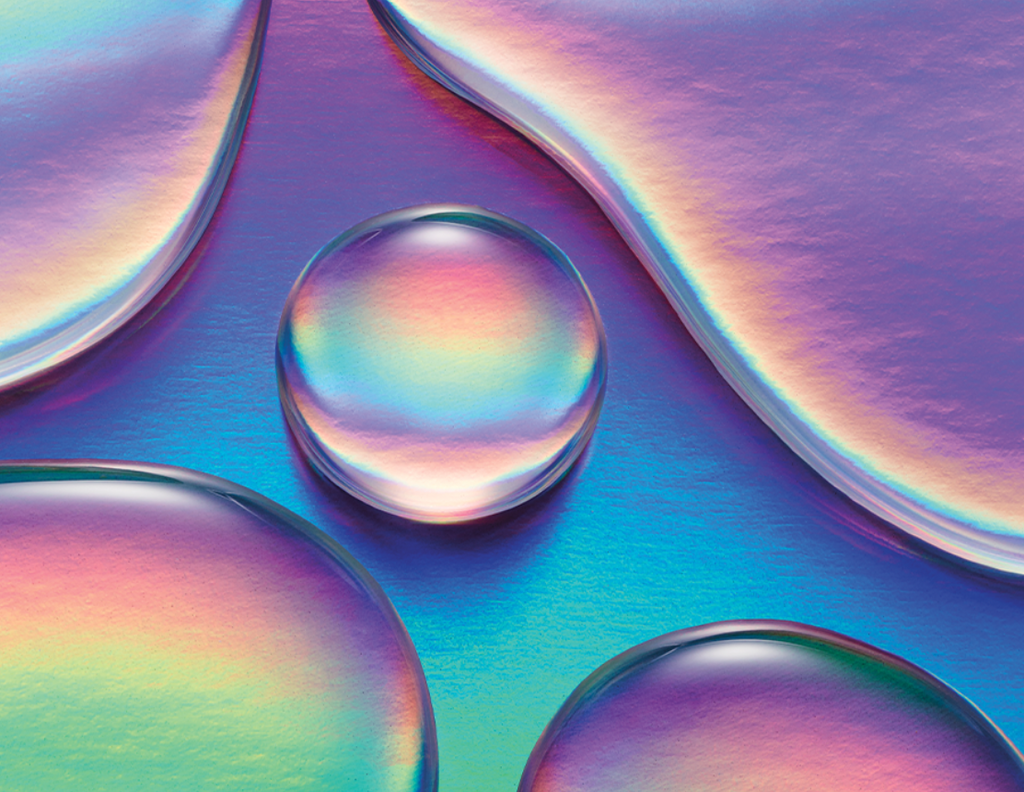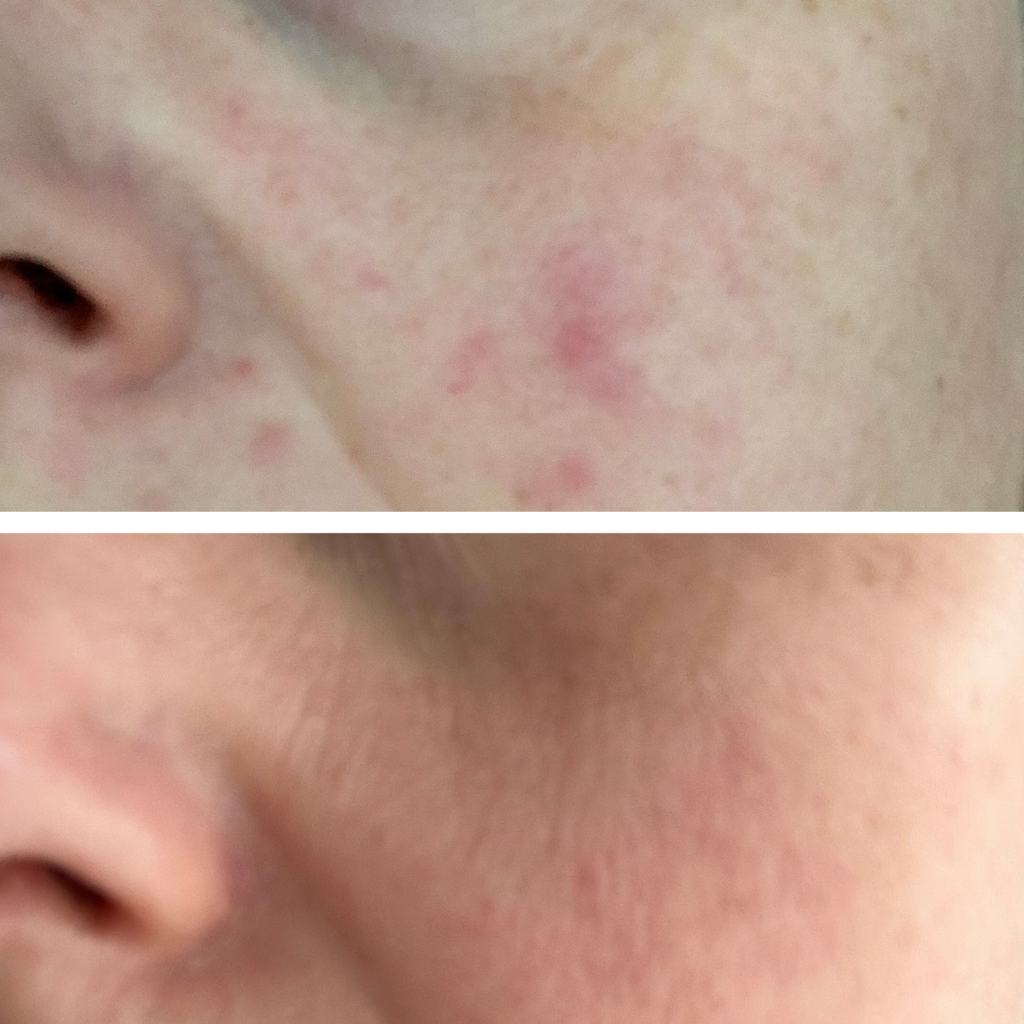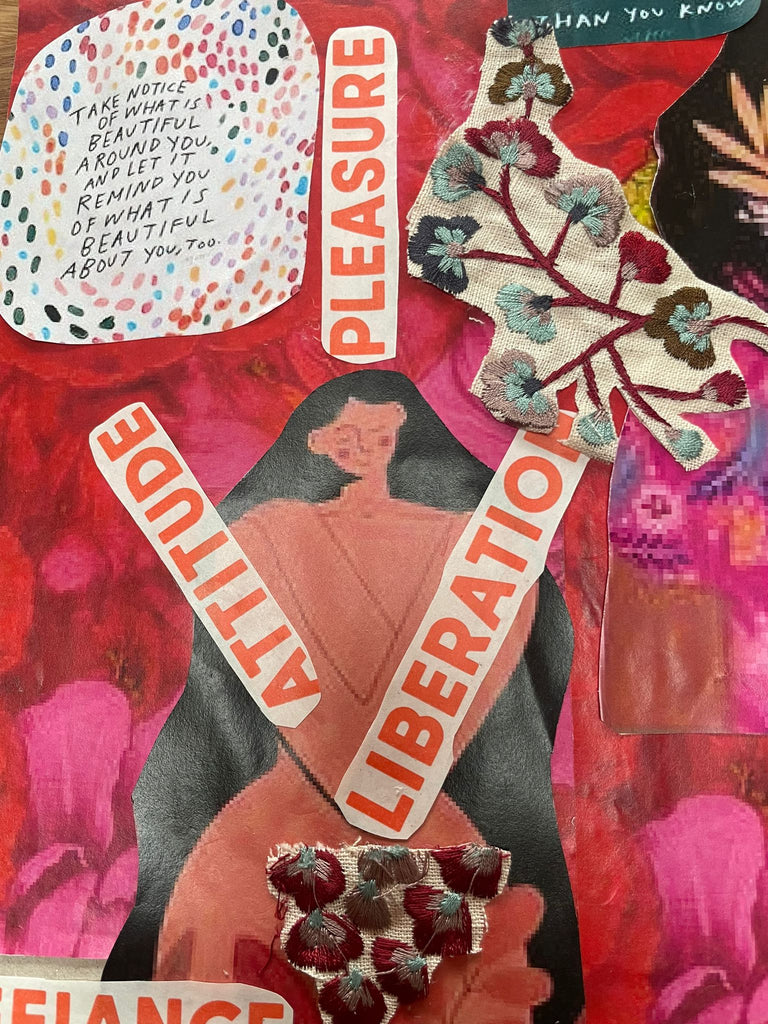Expect some hormone havoc
There are many, unexpected ways our skin can change at midlife, and one thing’s for sure, if you are experiencing unfamiliar skin symptoms, then you are not alone. Dr Derrick Phillips, consultant dermatologist (www.drderrickphillips.com) says, “About 64% of women who attend a menopause clinic discuss skin concerns.”
Basically, our pesky hormones are to blame. Their fluctuation at midlife affects every cell in our bodies, so no two women experience the same symptoms. As we enter the perimenopausal years (which are normally from our early 40s but can be any time after the age of 35) our hormones can start to shift. Dr Phillips says, “The changes we see in skin are mostly linked to a decline in oestrogen. “However, as oestrogen starts to decline other hormones such as progesterone and testosterone do too.”
By the time we reach the menopause, (the average age of which is 51 in the UK) the ovaries may have stopped producing oestrogen almost entirely which can then cause significant changes in our skin from acne to sensitivity and loss of volume. The changes can be sudden and unexpected but you’ll be pleased to know that they start to plateau as hormones level out.
THE SKIN SYMPTOMS OF THE PERIMENOPAUSE & MENOPAUSE
Some women have many skin symptoms all at once. Others have one or two, and some sail through with just a few more frown lines. Here are the most common issues to expect to see when you look in the mirror…
Who turned the volume down?
Collagen makes up three quarters of our skin and is our skin cushioning. Like the air in a balloon or the feathers in a duvet, collagen helps to maintain the skin’s springiness, and adds plumpness and volume.
One of oestrogen’s many jobs is to trigger collagen production in cells, and its decline in perimenopause means that our skin’s inner collagen padding declines too. As a result, our skin may not hold its shape quite like it used to. Meanwhile, Elastin, which is responsible for allowing our skin to ping back into shape when we smile or frown, also starts to wane. Together this can result in the appearance of lines, and potentially some sagging especially around the eyes or neck.
As we progress through the menopausal years, collagen and elastin levels decline further. According to Dr Dhesi, a leading women’s doctor, over the course of the menopause our collagen levels drop off by 30% which can cause further wrinkles and a general loss of skin’s plumpness.
*A note on the neck
Many women find that one of the first areas they can visibly see a loss of volume and elasticity is their neck. This is due to the fact that skin is thinner here, has no bone structure to cling onto, and is an area that is constantly twisted and ‘wrung out’ as we look left and right or look up and down. Without its collagen ‘bounce-back’ the skin here can ‘go’.
Acne, again?
Just when you thought you’d buried your acne in the past along with your teenage angst, it can boomerang right back into our lives at midlife (along with some midlife angst). Thankfully it’s not something that every woman will experience in the menopausal years, but sometimes acne can rear its head for the first time in midlife. The reason? Dr Phillips explains that this is not caused by more testosterone as some believe but an imbalance of hormones, “As oestrogen declines, it can make testosterone more prevalent,” he says, causing skin to produce more oil and flare up.
Skin gets angry too
Not only might you be feeling angry at midlife, your skin may be having a moment too. Top facialist Justine Masters (@thealternativefacialist) really suffered with sensitive skin at midlife. “I had very sensitive and red skin and felt like my skin had aged overnight,” she says. Sudden sensitivity is something she sees often in her clients.
Skin can become irritated as we age for a number of reasons. Firstly, Dr Dhesi says that skin is thinner due to collagen decline (interestingly, heat spikes and temperature fluctuations have a detrimental impact on collagen levels), meaning skin is also less protected. Secondly there is a decrease in natural oil levels which can mean a disrupted skin barrier, which can leave skin unusually red, dry and itchy and application of some products can cause stinging.
Masters also sees quite a few women during the peri and menopausal years develop rosacea, a red, often painful rash with tiny burst blood vessels. Whilst an unhappy skin barrier can exacerbate this, many experts believe that the hot flushes associated with the menopause can disrupt the delicate blood vessels to the face too, leaving it inflamed.
Cracking up?
If your skin feels as dry and rough to touch as sandpaper then you are not alone. Dr Dhesi says ‘Oestrogen is crucial for maintaining skin’s moisture levels’ so as oestrogen declines, so do our skin’s natural oils which usually act like a built-in moisturiser or our natural youth serum. Our skin’s ability to retain water is also impaired. Dr Dhesi says “Lower collagen levels mean thinner skin, which can lead to a reduction in the skin's barrier function, allowing hydration to escape.” Overall, this results in much drier, less bouncy, parched feeling skin that never feels hydrated enough no matter how much moisturiser you use.
Note: whilst drinking water is incredibly good for our body and skin’s function, no matter how much we drink at midlife, our skin finds it hard to retain it.
Feeling a bit dull
A common complaint Masters has in her clinic is that women say their skin has become dull or less vibrant and ‘looks like it has aged overnight.’ “This is due to the fact that cell turnover is slowing down,” she says, which means skin isn’t renewing itself of old skin cells as fast as it did, which diminishes its vibrancy.
How to regain your skin’s midlife mojo
Whilst there are so many changes to skin at midlife, there is a LOT we can do about it, starting with upping your skincare ante. Just as you wouldn’t exercise like you did twenty years ago, the skincare regime you did in your 20s and 30s won’t cut it in your 40s and 50s. Because no two women’s skin symptoms are the same, it is vital that you tune into your own skin and what is happening to it. “The key is to really listen to our skin, not skincare trends. Your skin will have changed and your skincare needs to adapt to your individual needs” says Masters. If retinols or AHA’s are making your skin sensitive for example, stop.
Here are your new midlife skincare rules:
Go Gently
When skin is turbulent, the temptation is to throw the strongest ingredients at it you can find. However, as Masters says, this is often not what your skin needs in menopause. “Some actives can cause skin to be very reactive,” she says, “And if your skin is very inflamed it’s going to make it worse.” A better option at midlife would be to choose an active such as CBG (see below) which has a proven anti-inflammatory effect to help calm the skin. Much in the same way that we need to up our self-care in menopause, we also need to nurture our skin.
Don’t strip
Whilst it’s important to cleanse the skin and exfoliate to encourage cell turnover, it’s vital you don’t overdo it as you may disrupt the skin’s delicate barrier. Instead use a cleanser that doesn’t strip oils from the skin, and which actually helps replace them. Justine Masters even suggests that those with particularly dry skin avoid cleansing in the mornings, something she says is a gamechanger for many of her clients in terms of increased radiance, less dryness and sensitivity.
Nurture and Nourish
Instead of using any ingredients that take away from skin’s resources, at this stage in life we need to think about replacing lost collagen, natural oils and moisture with collagen building actives and hydration boosting ingredients. Think of cocooning your skin rather than cracking down on it.
YOUR TWO MIDLIFE SKINCARE SUPERHEROES
CBG is harvested from both the hemp and the cannabis sativa plants when they
are young and in their most energetic growing phases. It is much less abundantly available in the plant (in most plants you’ll find only trace amounts of CBG, i.e. no more than 1%) than other cannabinoids but this makes it incredibly potent.
Benefits of CBG in skincare include:
A reduction of inflammation in sensitised skin - whether from UVA and UVB rays of
chemical irritants. Tests have shown that CBG is twice as effective as CBD in reducing TNF, a substance in the body that causes inflammation. Jackie Lamyman, founder of Made of More says, “Whether your skin is inflamed due to hormonal disruption or because you are using actives like retinol, CBG can counteract the sensitivity in both cases.”
Reducing water loss in skin
As discussed above, our skin’s ability to retain water can be impaired during menopausal years. Tests show that CBG can reduce trans-dermal water loss, helping to keep skin hydrated, youthful and plump looking.
Superior antioxidant properties
Oxidative stress is clinically known to age the skin. Therefore, during the peri/ menopausal years it’s vital we use products that contain antioxidants to mop up free radicals and protect against future damage. Clinical studies show that CBG is 50 times more effective at fighting free radicals than CBD and consistently outperforms Ascorbic acid in clinical trials.
Inhibits acne causing bacteria
The anti-inflammatory effects of CBG can help to rebalance the skin and reduce midlife acne. Not only that, but CBG inhibits the growth of acne-causing bacteria strains such as Styaphylococus aureus.
HEMP SEED OIL - THE SKIN NURTURER
Rich in fatty acids such as linoleic acid and a-linolenic acid, hemp seed oil is cold pressed for maximum efficacy. It hydrates and soothes dry or sensitised skin. It positively influences the fluidity of cell membranes, helping hydration to flow more freely through the skin. Proven to help stimulate skin regeneration, it also helps to protect the delicate skin barrier which can be disrupted and aggravated at midlife. A healthier barrier means it is harder for harmful microbes to enter the skin and reduces breakouts.
Benefits of hemp seed oil in midlife skincare include:
Increased hydration – hemp seed oil is a life saver for dry skin, restoring the skin barrier and helping it to retain lost moisture. Deeply nourishing for parched skin, it reduces itchiness and flakiness without clogging pores, leaving skin glowing, youthful and healthy-looking.
A reduction in acne symptoms – whilst it might seem counterintuitive to apply an oil to spot-prone skin, the anti-inflammatory, anti-fungal and anti-bacterial properties of hemp seed oil will calm angry, hormonal acne without leaving skin greasy or clogging pores.
